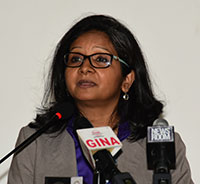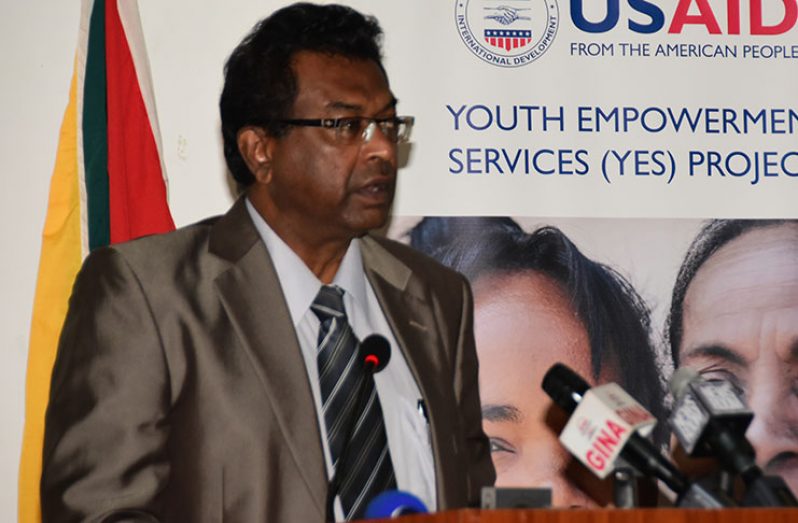…US$14M project unveiled to address youth violence
MINISTER of Public Security, Khemraj Ramjattan,has said that the Caribbean Community

(CARICOM) must create a culture that will see young people becoming an asset rather than a liability.
At the time, he was delivering the feature address during the first session of the CARISECURE Inception Workshop at Regency Suites on Wednesday. CARISECURE, which stands for Strengthening Evidence-Based Decision Making for Citizen Security, is a US$14M project funded by USAID and the first component of the Youth Empowerment Services (YES) project.
This component aims to reduce the prevalence of crime and violence among youths through the implementation of policies and programmes based on evidence.
Addressing key stakeholders in the area of security, including those from other CARICOM nations such as Barbados, Ramjattan said evidence-based decision- making will help the region to craft the culture needed to transform youths, who are involved in crime and violence and are at-risk, into meaningful members of society.
Alluding to the UN Report on Violence against Children in the Caribbean (2006), Crime, Violence, and Development: Trends, Costs, and Policy Options in the Caribbean, the Caribbean Commission on Youth Development and the 2010 Declaration of Paramaribo on the Future of Youth in the Caribbean, Minister Ramjattan said these reports inform the region about the reasons for youth crime and violence, their direct and indirect causes such as aggression, physical abuse, illiteracy and dysfunctional families, but said there is a lot more to be learnt, noting that greater steps are needed to address this issue.
He said long-term investments in national research and development in youth crime and violence in each CARICOM territory are needed. “Continue the effort of having a coherent and coordinated CARICOM Regional Strategy for identifying the intervention needed, and thirdly, institute a programme of vigorously evaluating these interventions to see what works and what does not.”
Thereafter, a political commitment must be made to procure the required sources needed to make the interventions. As such, he said the CARISECURE component of the YES Project is a step in the right direction. UNDP Deputy Resident Representative Shabnam Mallick, in giving an overview of the CARISECURE, said within the next five years, UNDP will work with seven countries in the Eastern and Southern Caribbean with the focus on Guyana, St. Lucia and St. Kitts and Nevis.
Mallick said approximately two years ago, UNDP had initiated a regional discussion with representatives from the Ministries of National Security, Youth and Social Transformation, along with youth organisations in an effort to address the recommendations of the 2012 Caribbean Human Development Report and Citizen Security. That discussion, she said, continued in 2015 through a series of national dialogues and preliminary assessment missions.
“It [data] was the central ingredient for developing evidence-based policies and community-based programmes that focus on prevention,” Mallick noted. These dialogues, she further noted, had given rise to the CARISECURE and by extension the YES initiative.
Based on data collected thus far, the exposure to violence at an early age can result in long-term physical, mental and emotional harm. “It puts young people at greater risk at failing in school or subsequently struggling to find or keep a steady job. It also means that they are likely to come in contact with the juvenile justice system,” the UNDP Deputy Resident Representative explained.
Component Two of the YES Project focuses on community, family and youth resilience, with the aim of building youth resilience in response to growing levels of crime and violence, while the third component – the Juvenile Justice Reform Project – promotes the rehabilitation and re-integration of youth in conflict with the law, back into society.




.png)









